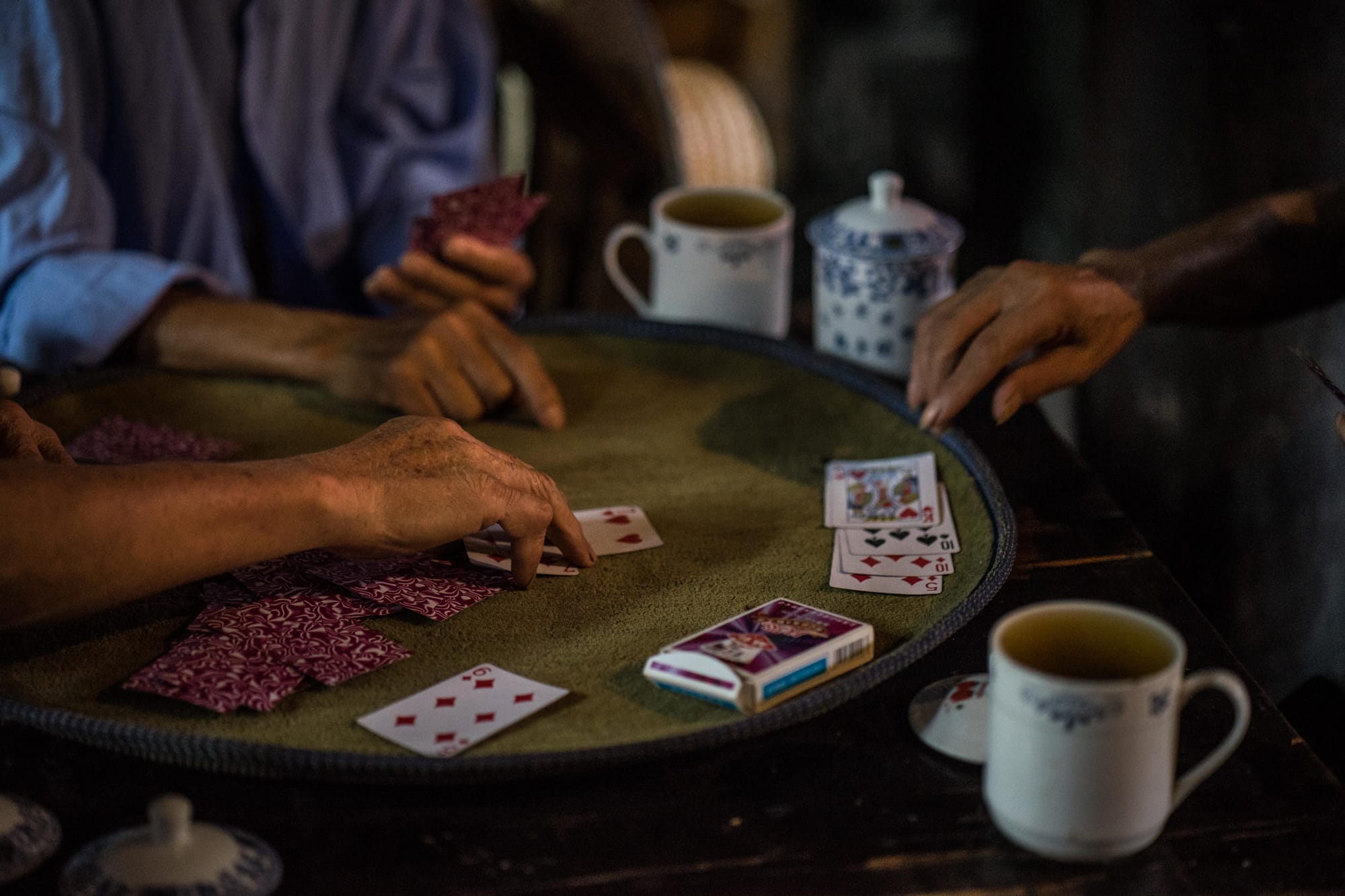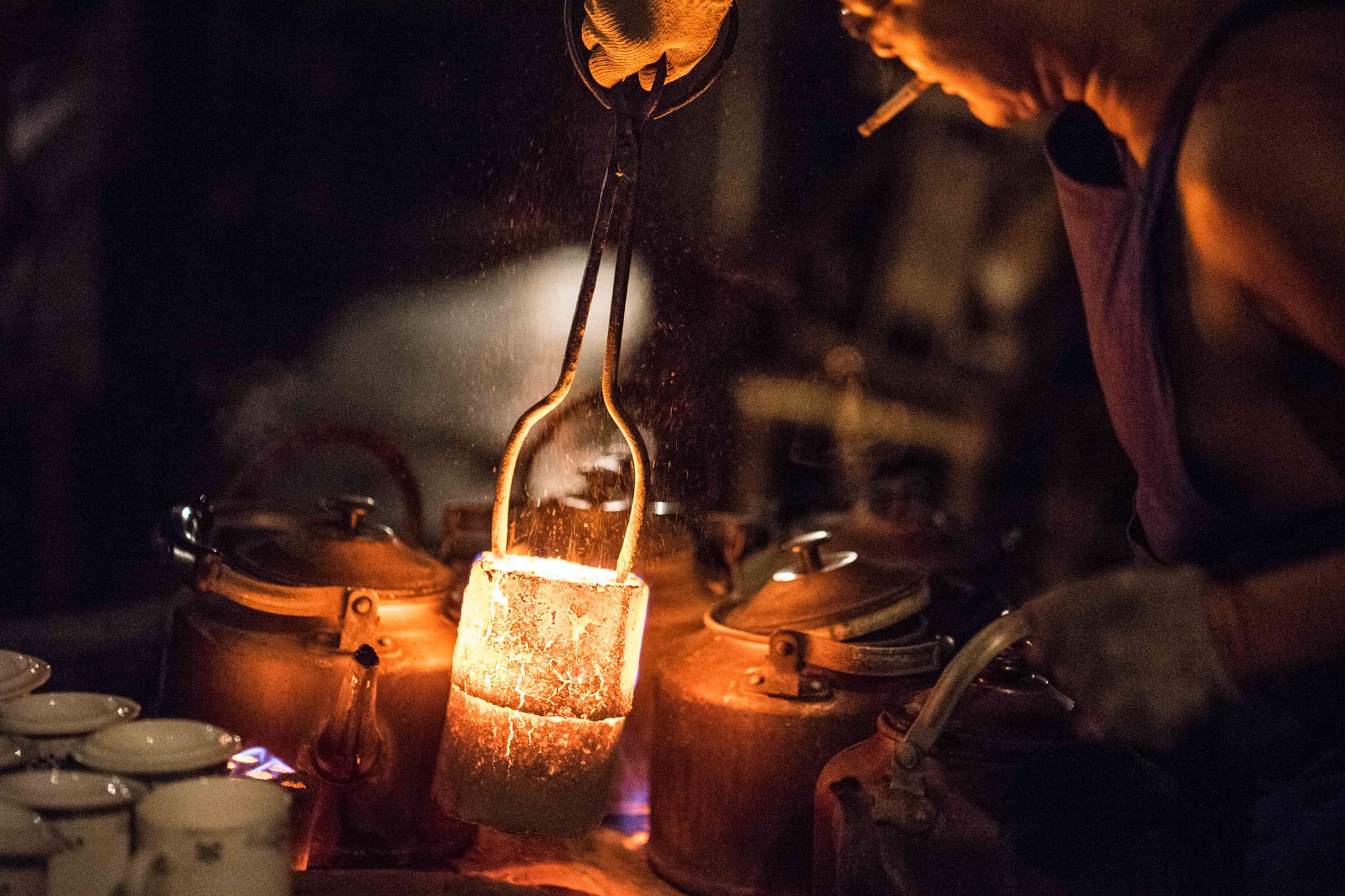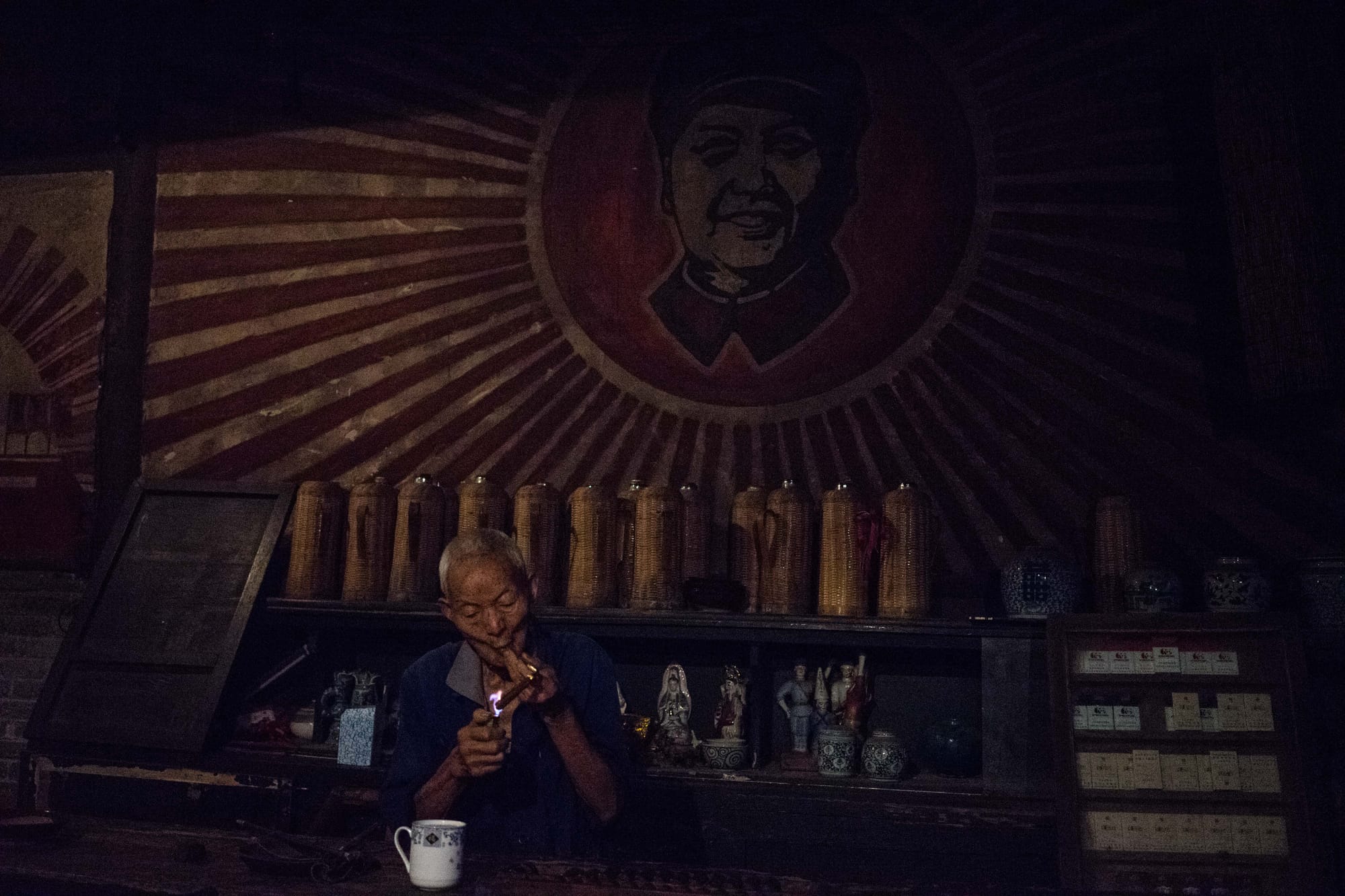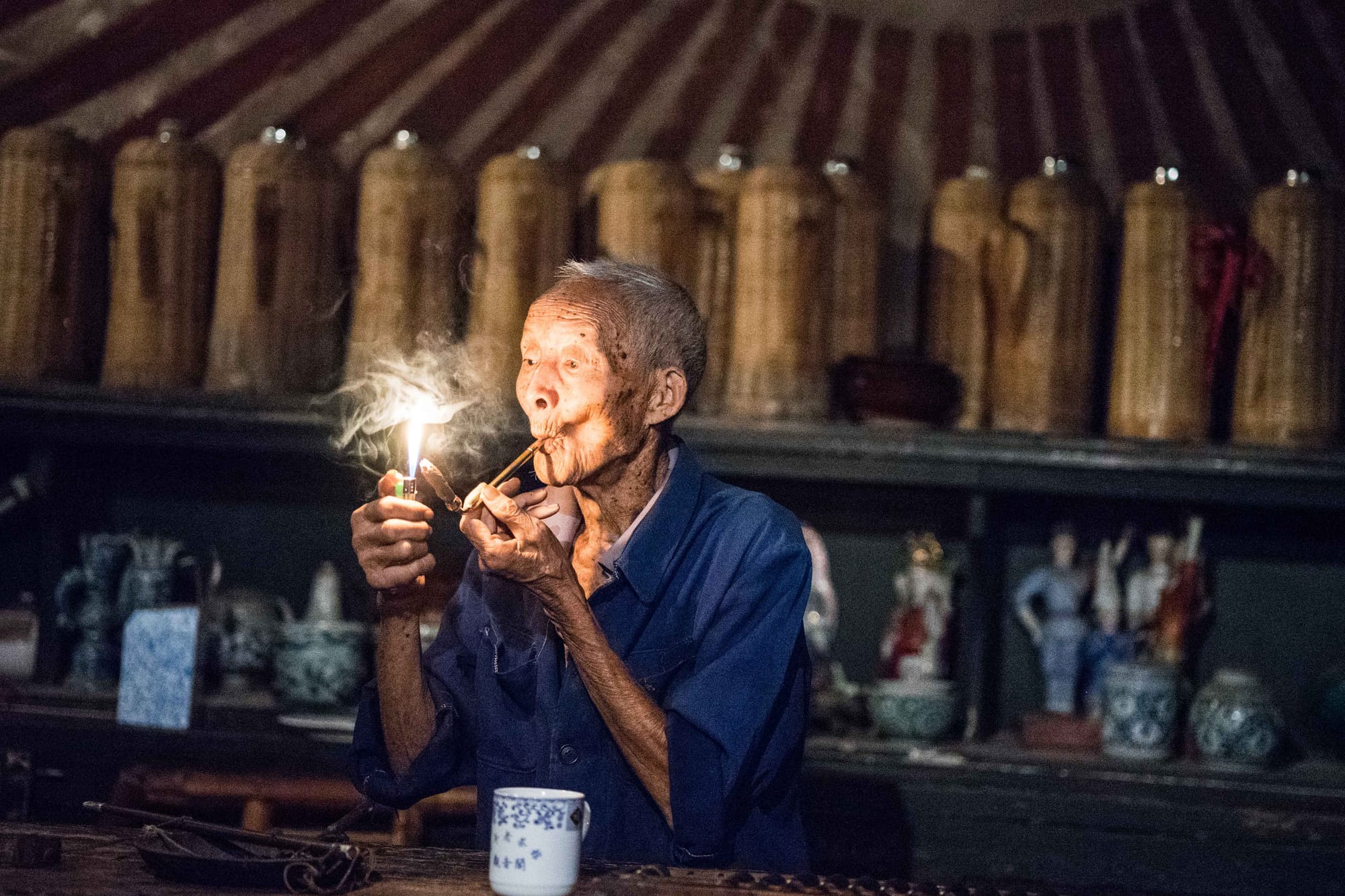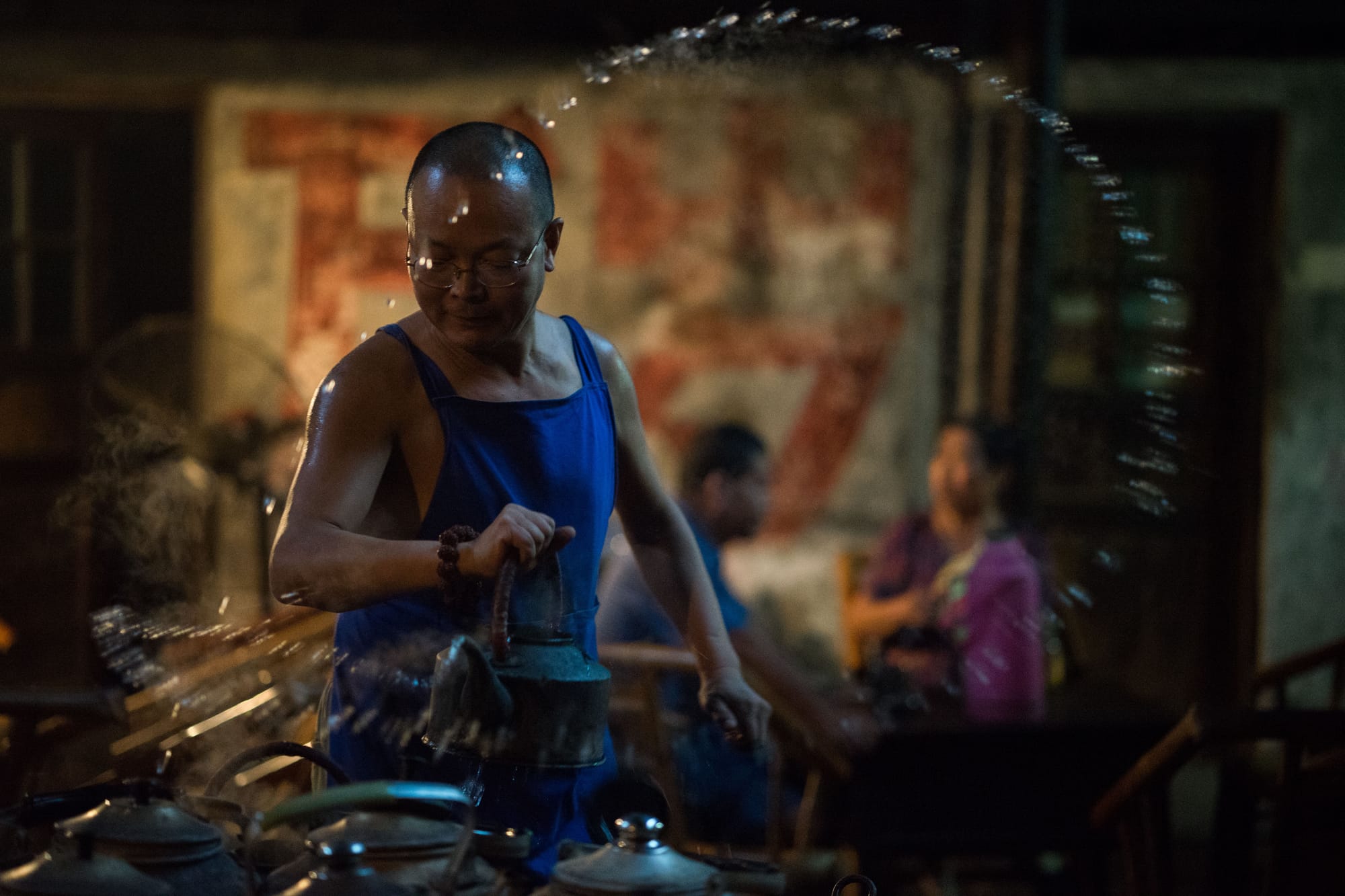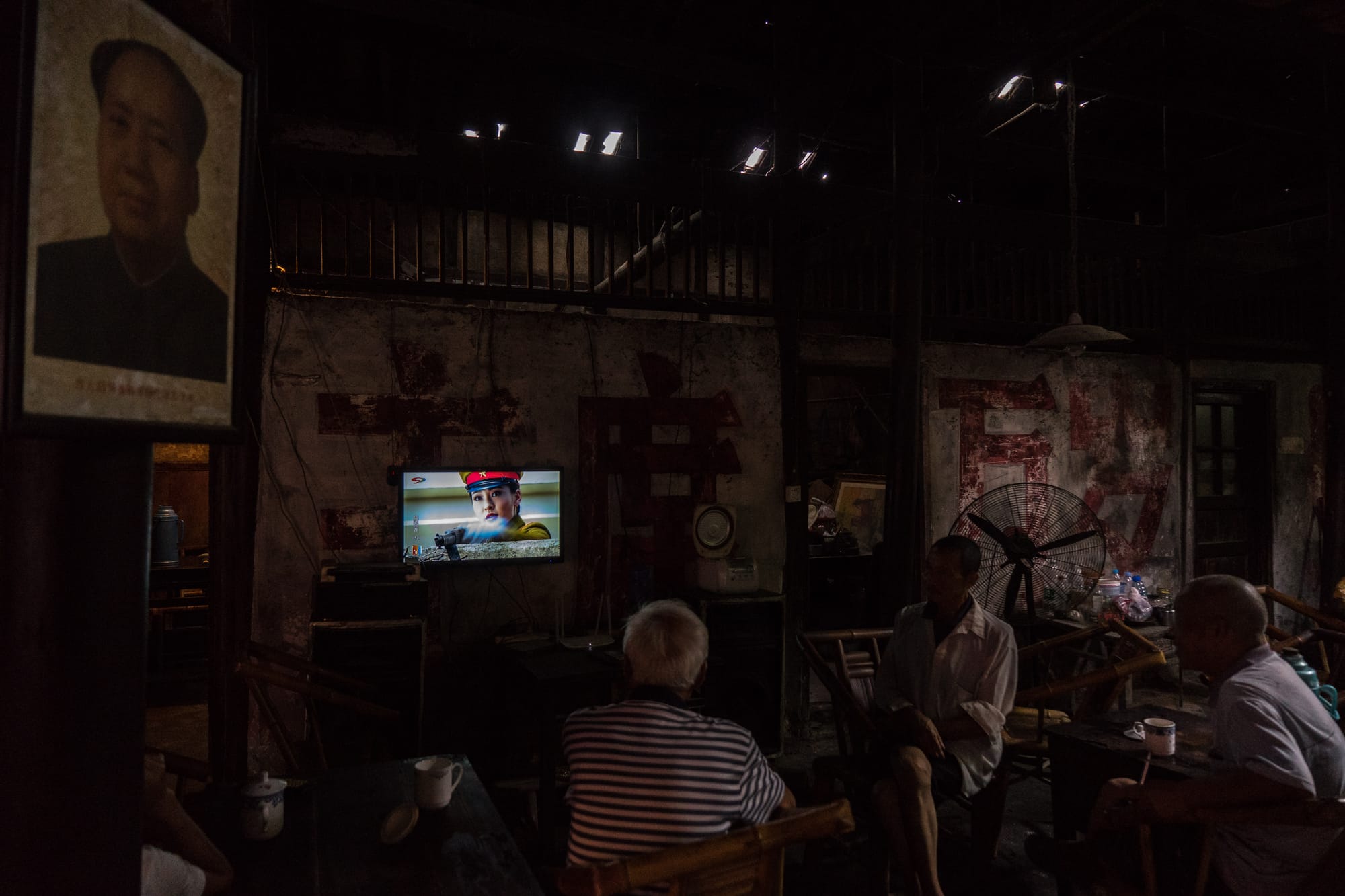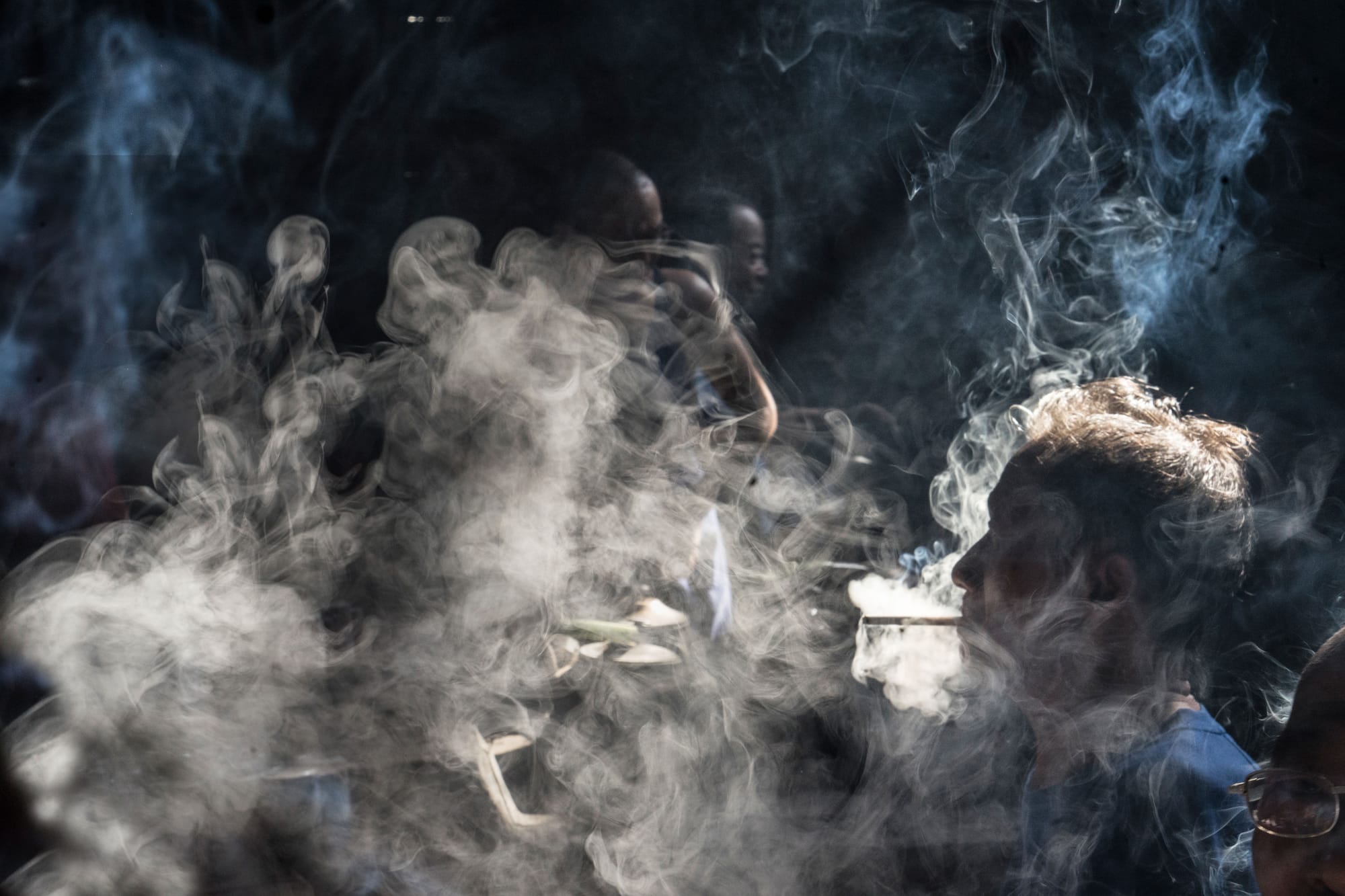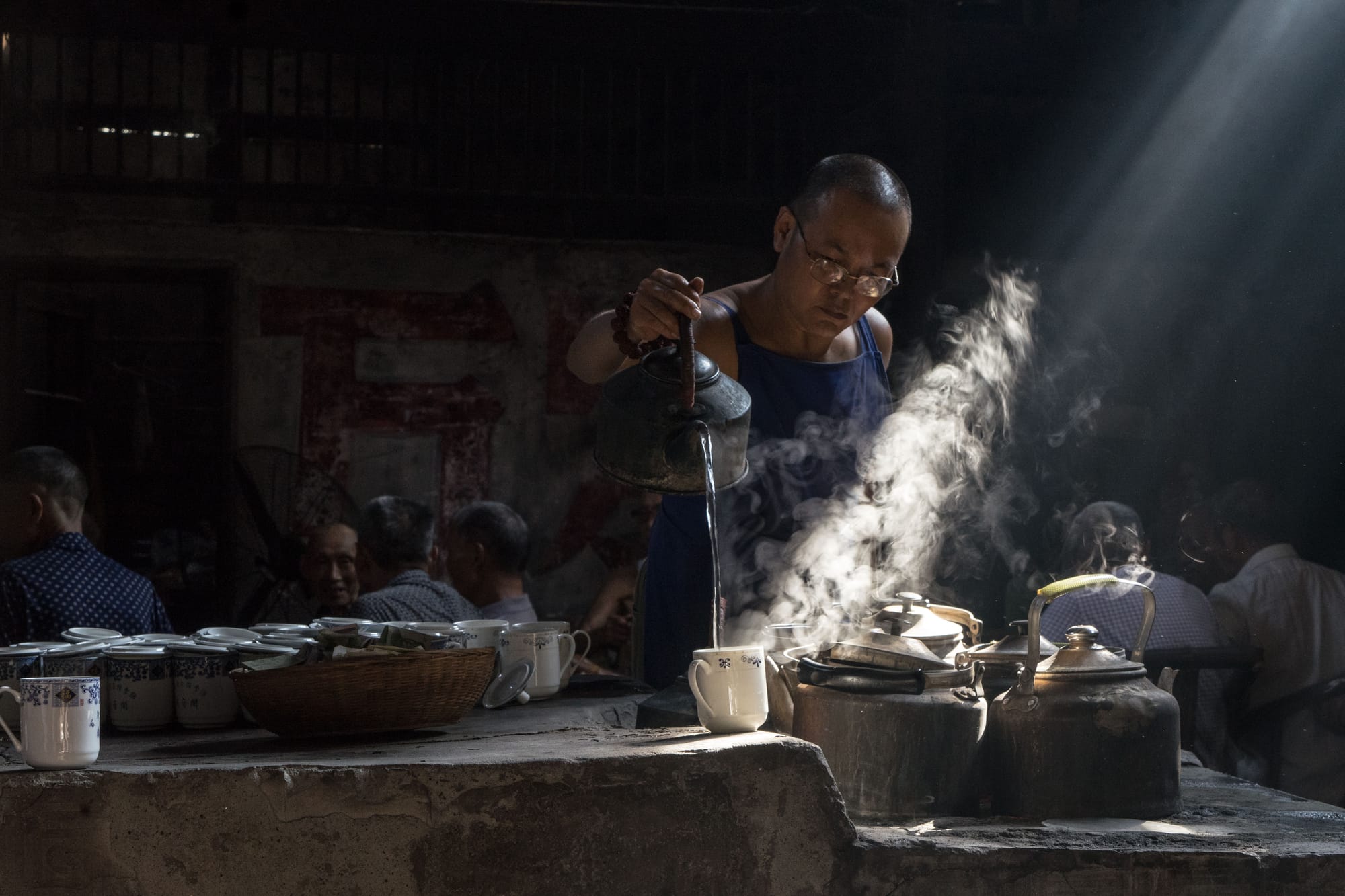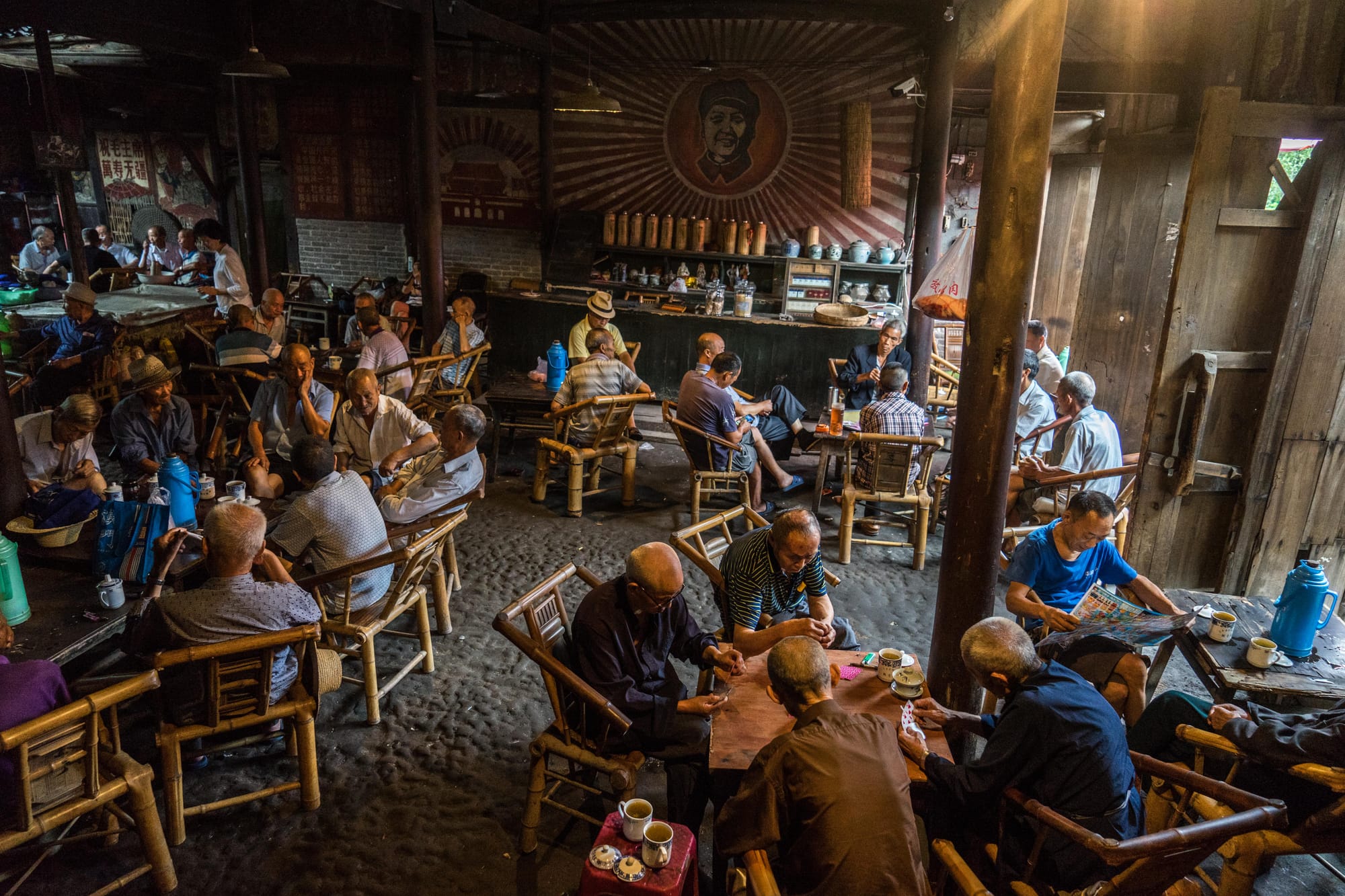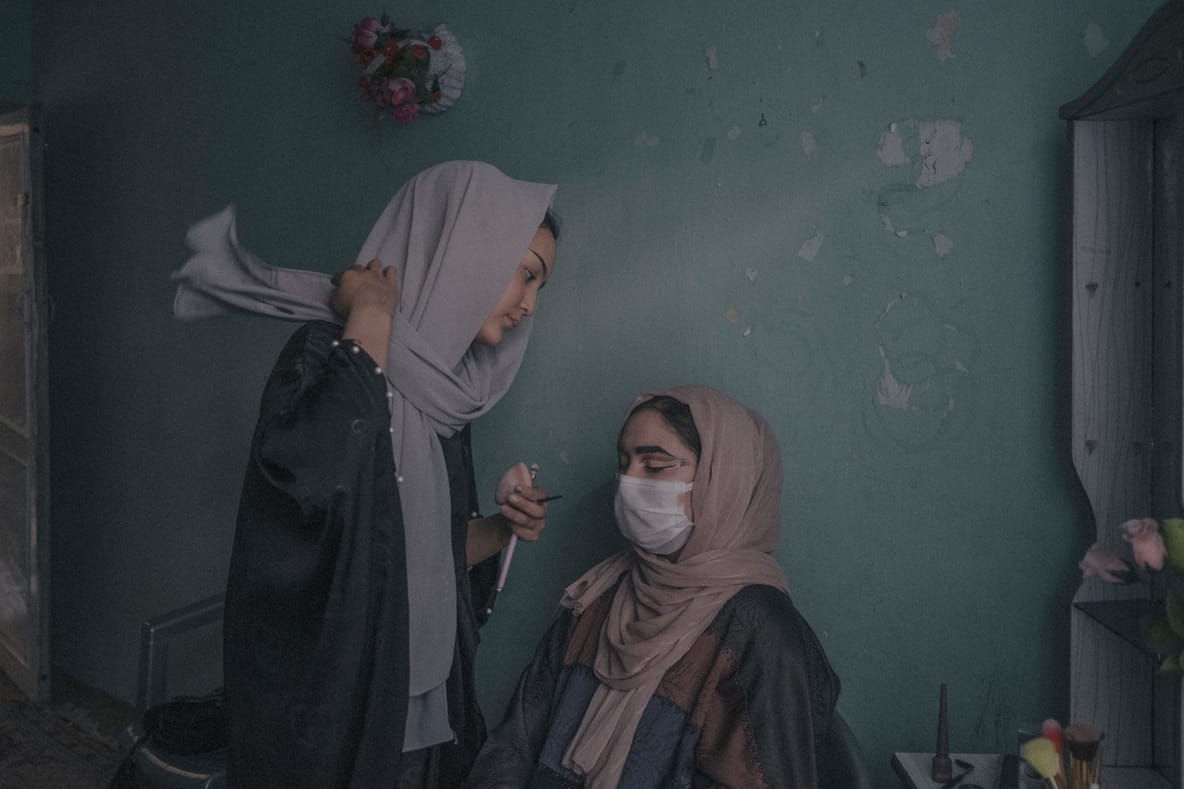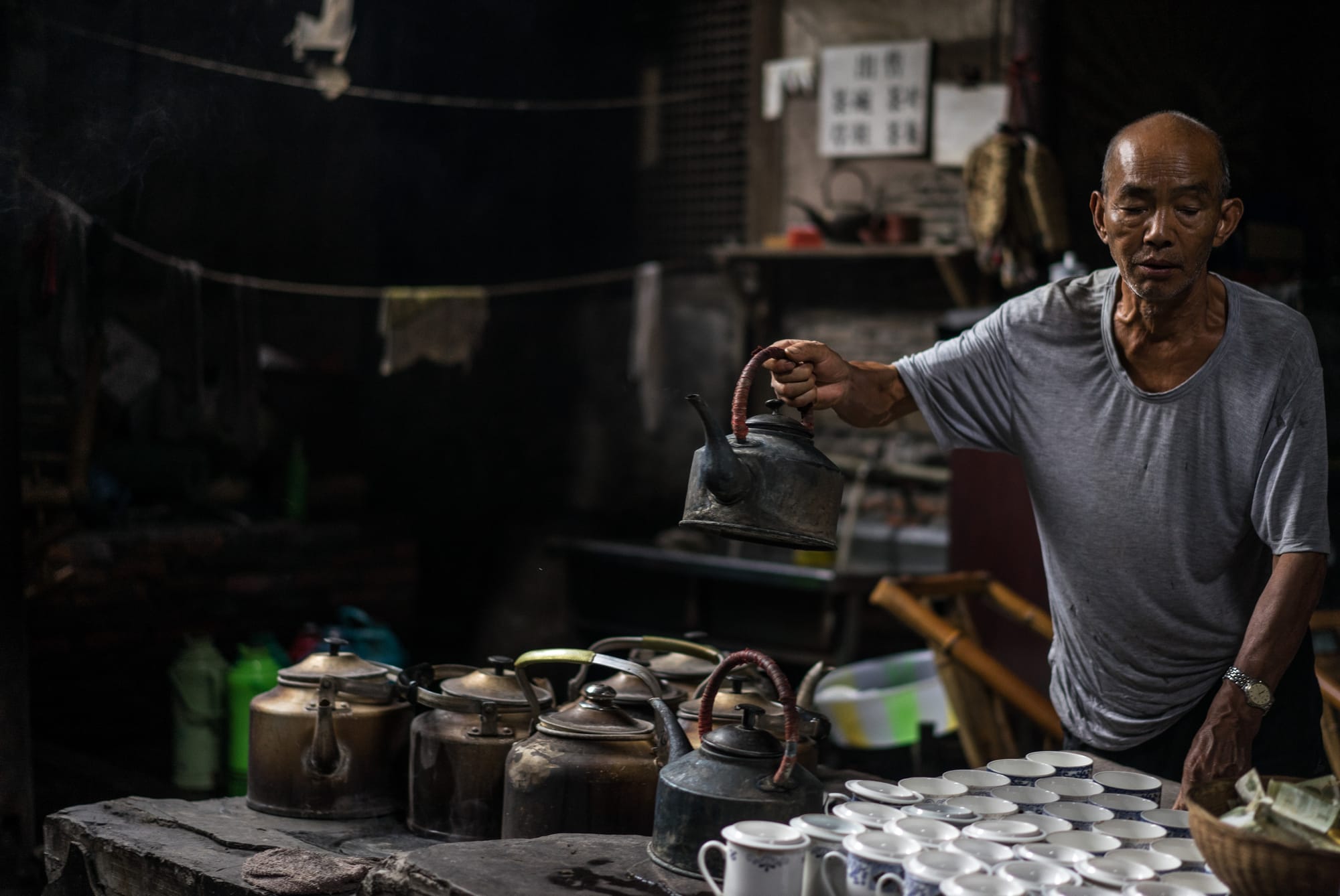
Pengzhen, some twenty kilometers from the city of Chengdu, is home to a hundred year old teahouse whose preservation of traditional decoration and tea culture draws many people to enjoy the peaceful, idle atmosphere whilst having a break from busy, city life. A facet ChengduÕs indigenous culture, old teahouses are disappearing as society undergoes transformational urban development. Nevertheless, this old teahouse, located near Willow River in Shuangliu county, Chengdu, persists in maintaining the traditional culture.
At 4:30 am the kettles crackle on a charcoal stove as regulars crowd inside an ancient Chinese temple-turned-teahouse. The tea served here is purchased for a modest one RMB (0.12 euros) per cup and has a sweet flavor because the water comes from a well deep inside the tea house. Outside the Guanyin Pavilion teahouse, named for the goddess the temple was once dedicated to, elderly men chat as they wait for the 300-year-old building's large wooden doors to open. Lower down, decaying paintings on wooden panels depict Communist China's founder Mao Zedong surrounded by sunbeams, or slogans glorifying socialism. Customers sit on bamboo chairs in small groups, under the pale glow of naked light bulbs suspended from the high ceiling.
The habitual clients are elderly men , some of them over 90 years old. For them this is a second home, it's like being in a family.
